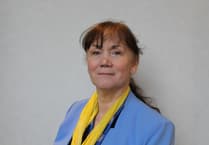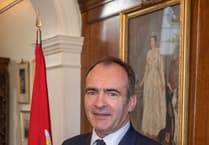A report before Tynwald will see a number of quangos and board shut down and absorbed by other groups.
The report into quasi-autonomous non-governmental organisations (quango) is being driven forward by Police and Reform Minister Chris Thomas.
In total, there will be five quangos that will be dissolved.
However the work they currently undertake will be taken on by other groups within the department of which their work is part.
This includes the Gaelic Broadcasting Committee, which is to formally become part of Culture Vannin. Its budget was moved to Culture Vannin in 2016/17 and continued to operate as it did before.
The director of Culture Vannin, Dr Breesha Maddrell, said: ’The committee works to support and promote the use of the Manx language on radio and internet broadcasting wherever possible. It supports Moghrey Jedoonee and the Manx version of the news on Manx Radio.
’Moghrey Jedoonee aims to give a "way in" to Manx language and culture to a more general listenership, and the weekly news bulletins in Manx provide material suitable for fluent speakers and language learners of all ages alike.
’The committee is helping to support the delivery of the Manx language strategy by thinking of innovative ways to embrace changes to broadcasting internationally, the need for more digital content available online on demand, and the need for new voices for future broadcasting.
’The work of the committee dovetails quite naturally with that of the Manx language development officer for Culture Vannin.’
Mr Thomas added: ’Little will change under Culture Vannin as the situation is currently de facto what it will be de jure after enactment of Communications Bill 2018.’
Other quangos being broken up include the Police Advisory Group and the Police Consultative Forum as well as the Education Act Religious Education Committee and the Education Council.
On the destruction of the Education Council, a Department of Education spokesman said: ’Following the consultation on principles in regard to the Education Bill, it has been proposed that the Education Council will no longer exist.
’The proposals for department-appointed governors will ultimately be subject to Tynwald scrutiny and decisions. Any changes regarding the Education Council will not be in place by September.’




